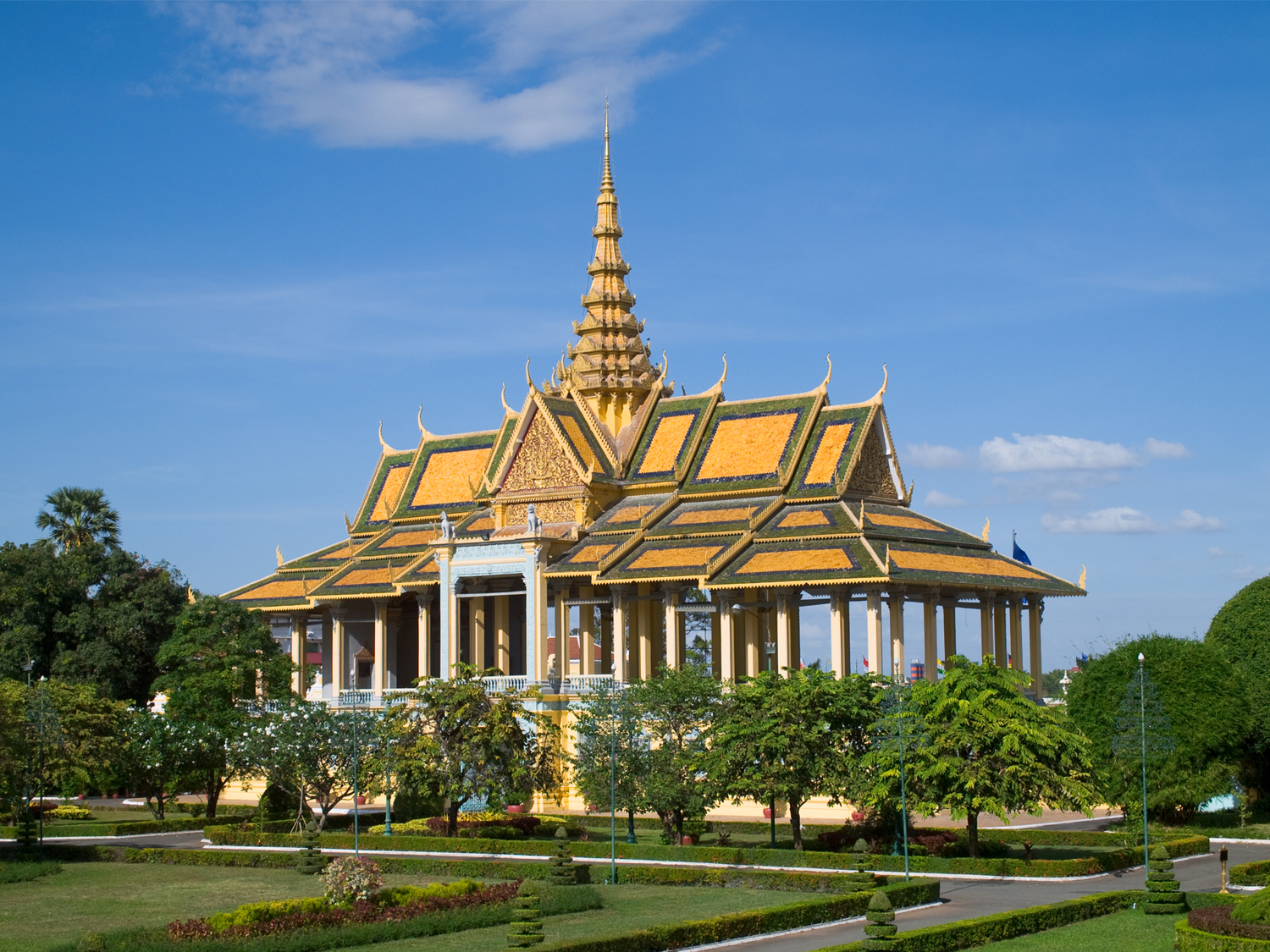
Cambodia is more than just a land of ancient temples and golden sunsets — it’s a country where faith weaves through everyday life, where spirituality dances with tradition, and where religion has survived, adapted, and endured for centuries.
Walk through any Cambodian village at dawn and you’re likely to hear the soft chants of Buddhist monks echoing from nearby pagodas. Almost 95% of Cambodians today are followers of Theravada Buddhism, the state religion — but the reality is more layered. Cambodian spirituality is a unique blend of Buddhism, Hinduism, animism, and even folk beliefs that shape how people live, worship, and connect with the world around them.
🧘♂️ Buddhism in Cambodia
Buddhism first arrived in Cambodia as early as the 5th century, possibly even earlier, and has shaped the Khmer identity ever since. On your Cambodia tour, you’ll visit many of the nearly 5,000 temples scattered across the country — some ancient, some modest, but all integral to daily life.
Though officially Theravada in nature, Cambodian Buddhism often includes rituals and customs inspired by Hinduism and animism. Many Cambodians believe in reincarnation, and seek to “cleanse” their past through good deeds in this life. Temples aren’t just places of prayer; they’re also centers of community, where people come to seek guidance, make merit, and celebrate life’s milestones.
During your trip, don’t be surprised if you witness a colorful Buddhist festival timed by the lunar calendar, or see saffron-robed monks blessing homes, businesses, and even tuk-tuks!
🛕 Hinduism – Echoes of the Past
While modern Cambodia is overwhelmingly Buddhist, the shadows of Hinduism still stretch across its landscapes — especially at Angkor Wat, the world’s largest Hindu temple. Once the heart of the mighty Khmer Empire, Angkor Wat was originally dedicated to Vishnu, and its detailed carvings still depict tales from the Ramayana and Mahabharata.
From the Funan Kingdom to the Angkorian Era, Cambodia was ruled by a mix of Hindu and Buddhist kings, many of whom respected both faiths equally. If you’re fascinated by religious history, visiting the temple complexes around Siem Reap is like flipping through the pages of a spiritual epic.
☪️ Islam in Cambodia
Islam arrived in Cambodia from the west, brought by the Cham and Malay minorities. Today, Cambodia is home to roughly 100 mosques, serving communities primarily in the southern provinces and along the Vietnamese border. Before the Khmer Rouge regime, there were nearly 250,000 Muslims in Cambodia, but that number sharply declined during the years of persecution.
Muslim Cambodians typically practice Sunni Islam, and on some tours, especially those that explore local markets or riverside villages, you might meet Cham communities and learn about their way of life.
✝️ Christianity – A Quiet Presence
Christianity, mainly Roman Catholicism, arrived in the 16th century with Portuguese traders. While their early missionary work met resistance, the faith slowly grew under French colonial influence. By the early 1970s, there were around 60,000 Christians, most of whom were Vietnamese. Many left the country after political upheaval, and today, Cambodia’s Christian population remains small but resilient.
There are now churches in Phnom Penh and a few other major towns, and some Cambodians, especially younger generations, are exploring Christianity through NGOs and international schools.
🌾 Traditional Beliefs – The Spirit of the Land
In remote parts of Cambodia, particularly among the hill tribes, ancient animist beliefs still thrive. These communities — numbering around 150,000 people — believe in spirits tied to nature: to rivers, trees, stones, and soil. Village life is guided by shamans, and rituals are performed to maintain harmony with both good and malevolent spirits.
These beliefs aren’t confined to the mountains — even in Buddhist households, many Cambodians keep a spirit house in their garden to appease local spirits and protect the family.
✡️ Judaism – A Tiny Thread in the Tapestry
Cambodia’s Jewish community is incredibly small — around 100 people, mostly expatriates and diplomats. There’s a Jewish center in Phnom Penh offering kosher food and community gatherings, especially during major holidays.
🧭 What You’ll Feel on a Cambodia Tour
A journey through Cambodia isn’t just a visual experience; it’s deeply spiritual. Whether you’re walking barefoot through Angkor’s ruins at sunrise, listening to monks chant at dusk, or watching a Cham child pray with hands outstretched, faith is always present, quietly shaping lives and landscapes.
Let a trusted Cambodia travel agency like VietNam Indochina travel guide you beyond the usual sights — into the sacred, the mystical, and the unforgettable. Because to truly know Cambodia is to understand the beliefs that have sustained it for generations.



